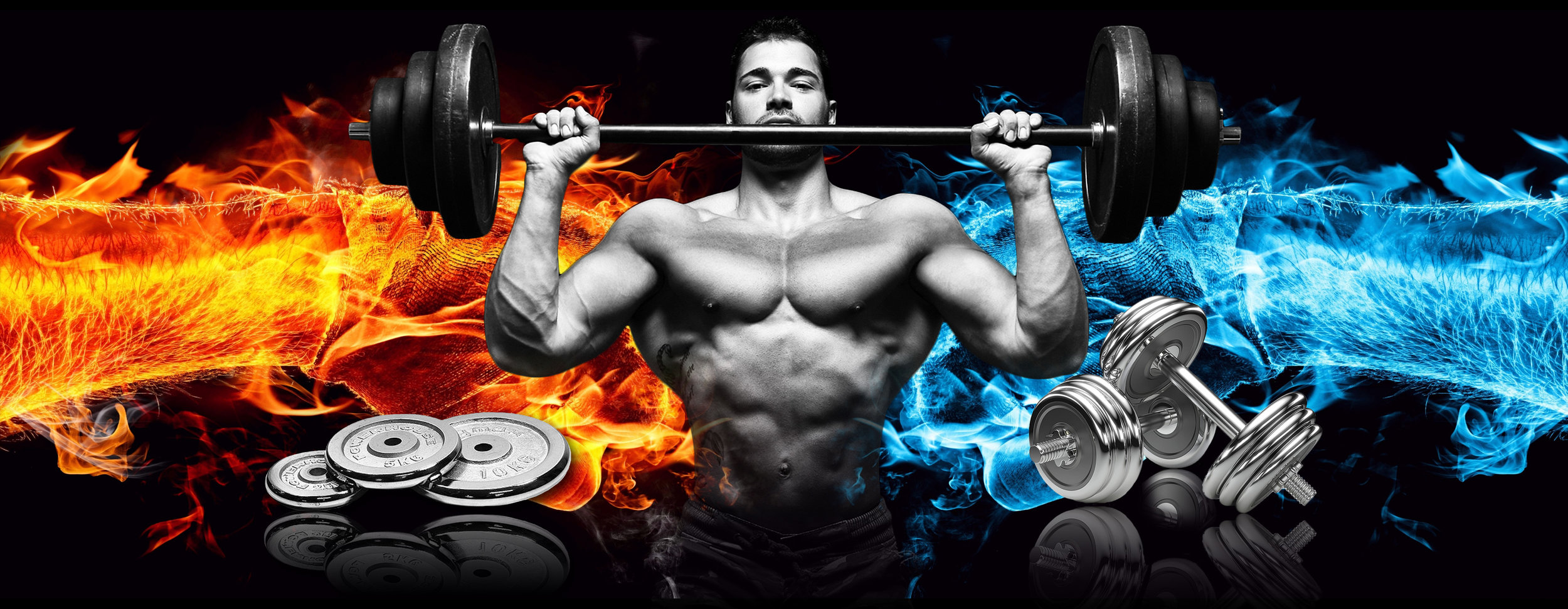Benefits of Ginseng for Energy, Immune Function, and Cognitive Function
Ginseng is a member of the Araliaceae family. It is a widespread, perennial herb. There are several variations of ginseng, such as American, Asian (Panax Ginseng), and Siberian. The root of the plant is the part that is used. Ginseng has been around for well over sixty years and study on it began as early as World War II. The main reason behind ginseng's popularity throughout the years is because of its so called adaptogen effect. An adaptogen is anything that improves resistance to stress such as: heat, cold, trauma, sleep deprivation, infections, many forms of stress, exertion, and numerous other taxing circumstances (1). Another interesting note about adaptogens such as ginseng is that they are suppose to be free of any side effects as well as helping an organism return to a state of balance and equilibrium. Simply put, ginseng supplementation has been shown to elevate mood, increase energy, strengthen the immune system, enhance mental function, give a positive sense of well being, and possibly, even help diabetics improve their blood sugar levels. Because of all these proposed positive effects, many have theorized that ginseng may be a very important supplement for improving human performance in athletes.
Due to the many years of investigation and study involving the supplement ginseng, there have been many highly advanced research studies that have taken place to shed further light on the topic. In one of the most classic ginseng studies performed nearly two decades ago involving human performance, Pieralisi et al (2) performed a double-blind, randomized, crossover study on 50 healthy male sports teachers, 21 to 47 years of age. Every day for six weeks, each subject received either a ginseng vitamin combination or a placebo. The subjects then performed an exercise test on a treadmill at increasing work loads. The total work load and maximal oxygen consumption during exercise was significantly greater after ginseng supplementation than after the placebo. Heart rate, lactate levels, and rate of perceived exertion were significantly less for a given work load in the ginseng group versus the placebo group. It can be clearly seen from this study that ginseng preparation increased the subjects' work capacity by improving muscular oxygen utilization.
Perhaps, one of the most profound studies to date involving ginseng and its effects on human performance was a study performed by Ziemba et al (3). This study involved fifteen soccer players averaging 19 years of age. They were placed into one of two groups: a placebo group or an experimental group which supplemented with ginseng. They were then placed on a bicycle ergometer at various stages until volitional speed or exhaustion was reached. All subjects were tested on reaction time through the entire study to assess mental alertness and mental acuity under a state of extreme exhaustion. It was found that ginseng treatment was found to shorten reaction time at rest and during exercise, shifting the exercise load associated with the shortest reaction time toward higher exercise loads. This study concluded that ginseng extract does improve psychomotor performance and reaction time during exercise without affecting exercise capacity.
One of the supposed drawbacks of supplementing with ginseng is the thought that ginseng simply carries out normal body functions and reactions on the same level as a multivitamin. In other words, some have theorized that ginseng is no more effective than a daily multivitamin. These theories and rumors led Caso et al (4) to examine these reports and claims in his own study. In this study, he compared the effects of two different supplements: a complex multivitamin and another similar vitamin but combined with ginseng. The study was comparative, randomized and double-blind, and it involved 625 patients of both sexes divided into two groups taking one capsule per day for 12 weeks. Group A received the multivitamin and ginseng combination while group B received the multivitamin only.
In this study, different measurements were taken as well as an 11-item questionnaire assessing the quality of life. The results indicated that Group A had significantly higher subjective measures of quality of life compared to Group B. It also appears that for the entire questionnaire, each question showed significant improvement for subjects in Group A, whereas, those in Group B, there was no significant difference or increase in any single question. Blood pressure and weight management were superior in Group A versus Group B. All in all, ginseng was found to be more beneficial than a standard multivitamin taken alone. Ginseng combined with a multivitamin appears to be an excellent supplement not only for health and performance, but also for psychological wellness and perception.
One of the more current studies by Hsu et al (5) could have major implications in regards to advanced human performance examined whether ginseng supplementation was able to improve endurance exercise performance as well as other physiological markers. There were two groups studied for four weeks: a ginseng group and a control group. Both groups underwent an exhaustive endurance running program in which they were consistently being tested at a VO2 max of 80%. Physiological measurements and performance indicators were studied. It appears that although there was no change in performance in either group, there was a significant decrease in creatine kinase leakage in the ginseng group. This could be of great importance to athletes due to the fact that high levels of creatine leakage are often associated and indicative of overtraining in athletes.
Of interesting note is that this study was using American ginseng versus supposedly the higher quality Asian ginseng. Thus, the results may have been even greater had the so-called superior Asian ginseng been used. It must also be considered that this study only lasted four weeks, which is generally too short a time period to induce measurable increases in long term performance. Generally speaking, improvements of physiological markers such as creatine kinase levels may take a minimum of 6-8 weeks to build up noticeable improvements in performance (8).
Among the many benefits already discussed on ginseng, it has been proposed that ginseng may also play a significant role in nitric oxide production in the human body. In a study by Friedl et al (6), he investigated the effect of Panax ginseng upon inducible nitric oxide synthesis. Levels of nitric oxide in the human body and other immune system functions associated with nitric oxide were measured in a laboratory setting using specimens of human cells. There were two conditions in which the cells were measured: one with ginseng and one without it. It was found that when the cells were injected with ginseng, levels of nitric oxide and nitric oxide synthase, which are responsible for the production of nitric oxide, nitric oxide was significantly higher than in those cells without ginseng. Although this study did not go further to test actual human subjects and investigate the potential outcomes, this study did show great potential. The authors have theorized from this study that because nitric oxide plays an important role in immune system function, sexual health, muscular strength and hypertrophy, as well as other factors, ginseng may therefore be a vital form of supplementation for the general population as well as many athletes.
Although there are many different forms of ginseng, there has been little conclusive evidence demonstrating one's effectiveness over the other. However, it appears that most scientists have found Asian ginseng to be the most productive and beneficial in their studies when compared to other forms of ginseng. In a review by Bucci et al (7), Asian ginseng was found to be the primary form of this supplement in quality studies that showed relevant and positive effects from ginseng. Simply put, most of the studies listed that used Asian ginseng benefited while those who used other forms of ginseng often found no difference between the control and experimental group. Also, most studies involving ginseng, use the Asian form of ginseng. As of today, Asian ginseng is the most popular among consumers. Before any conclusive evidence can be drawn to say that Asian ginseng is superior, much more research is needed. However, from mere opinion and speculation among nutritional specialists Asian ginseng seems to be the most highly recommended.
Summary and Recommendation
Ginseng is one of the most highly studied supplements to date. There have been hundreds of studies done on this supplement with a great deal of conclusive and empirical evidence recognizing its benefits. For this reason, ginseng may be a safe and effective form of supplementation for any and all populations. Some of ginseng's positive attributes include: elevated mood, increased energy, strengthening of the immune system, enhanced mental function, a positive sense of well being, and possibly even help diabetics improve their blood sugar levels. It also improves work capacity and muscular oxygen utilization by lowering heart rate, lactate levels, and rate of perceived exertion for a given workload.
Other benefits include: improved reaction time, psychological wellness and perception, increased oxygen uptake, improved post exercise recovery, indirect increases in muscular strength, decreased creatine kinase leakage, and increased nitrous oxide levels. As previously noted, nitrous oxide has a direct impact on strength, lean muscle mass, and increased hormone levels. All in all, the many positive effects from ginseng may give a higher value to this product compared with many other supplements on the market. However, for best results in athletic performance, ginseng should be combined with other forms of supplementation described in this literature review.
Due to the vast array of ginseng studies, dosage recommendations have been somewhat narrowed down. Experts usually recommend 500mg-2,000mg per day. Toxicity is not an issue as long as recommended doses are consumed. Even though ginseng has no ill effects, it is not recommended for pregnant or lactating women, or for persons with high, uncontrolled blood pressure. The timing of ginseng supplementation does not appear to be an issue. However, certain positive attributes may be enhanced if taken before any form of physical activity.
There appears to be a great number of reputable ginseng products on the market. As stated above, Asian ginseng appears to be the superior form of the product. According to consumerlab.com some of the best ginseng products include but is not limited to: Kinetana Ginseng, Puritan's Pride Korean Ginseng, Vitamin World Korean Ginseng, True Nature Triple Energy, and Hi-Ener-G Standardized Triple Ginseng Formula.
For more information on ginseng check out Healthy But Smart.
References
1. Bratman, Steven. Ginseng. Natural Health Bible. 2000; 301-303.
2. Pieralisi G, Ripari P, Vecchiet L. Effects of a standardized ginseng extract combined with dimethylaminoethanol bitartrate, vitamins, minerals, and trace elements on physical performance during exercise. Clinical Therapy 1991 May-Jun; 13(3): 373-82.
3. Ziemba AW, Chmura J, Kaciuba-Uscilko H, Nazar K, Wisnik P, Gawronski W. Ginseng treatment improves psychomotor performance at rest and during graded exercise in young athletes. Int J Sport Nutr. 1999 Dec; 9(4): 371-377.
4. Caso Marasco A, Vargas Ruiz R, Salas Villagomez A, Begona Infante C. Double-blind study of a multivitamin complex supplemented with ginseng extract. Drugs Exp Clin Res. 1996; 22(6): 323-9.
5. Hsu CC, Ho MC, Lin LC, Su B, Hsu MC. American ginseng supplementation attenuates creatine kinase level induced by submaximal exercise in human beings. World J Gastroenterol. 2005 Sep 14; 11(34): 5327-31.
6. Friedl R, Moeslinger T, Kopp B, Spieckermann PG. Stimulation of nitric oxide synthesis by the aqueous extract of Panax ginseng root in RAW 264.7 cells. Br J Pharmacol. 2001 Dec; 134(8): 1663-70.
7. Bucci L, Wolinsky I, Driskell J, Turpin A, Beer C, Feliciano J. Ginseng. Nutritional Ergogenic Aids. 2004; 379-410.
8. Baechle, T., Earle, R., Essentials of Strength Training and Conditioning. National Strength and Conditioning Association. 2000.






















